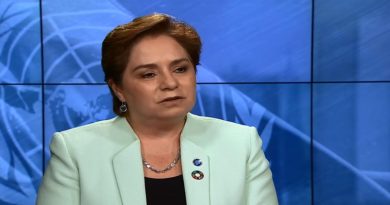Group launches Global Commission on Science Missions for Sustainability
The International Science Council (ISC) has launched the Global Commission on Science Missions for Sustainability with the sole purpose of pressing the reset button to accelerate the progress towards the Sustainable Development Goals (SDGs).
President of the organization, Peter Gluckma, former Chief Science Adviser to the government of New Zealand, announced this in Paris, France on 9 December 2021. The ISC is a non-governmental organization with a unique global membership bringing together over 200 international scientific unions and associations, plus national and regional scientific organisations, academies, and research councils.
The Commission, co-chaired by Irina Bokova, former Bulgarian Foreign Minister and Director General of UNESCO, and Helen Clark, former Prime Minster of New Zealand and previous administrator of the United Nations Development Programme, is tasked with co-designing and mobilizing support, aiming for a global fund of $US100m per year1 for mission-oriented science as part of a decade of action.
The Commission, backed up by the recent ISC report titled ‘Unleashing Science,’ makes the compelling case for stepping out of our business-as-usual approaches towards structuring science, funding science, and doing science. While science has done a lot to advance the human condition over the last hundred years, science now needs a quantum shift in how it works together with society and policy on the many issues that need to be addressed with urgency.
The report calls for an ambitious approach – a concerted effort to produce actionable knowledge through a defined set of Sustainability Science Missions in the critical areas such as food, energy and climate, health and wellbeing, water, and urban areas. Delivering these missions will require a common pool of science funding and a support system that allows scientists to work on these key issues without distractions and to produce urgent usable knowledge to achieve real policy outcomes.
It will also require bold and strategic action from governments, policymakers, science funders, scientists, philanthropy, the private sector, and civil society.
Speaking at the announcement, ISC President, Peter Gluckman said: “The world faces many urgent challenges – while science has already contributed much knowledge, what has been lacking is coordinated focus on actionable science that is needed. The global community has supported big science approaches in basic science, such as at CERN, now is the time to do so for those existential and urgent issues affecting humanity and the planet. The pandemic illustrates that both the natural and social sciences working together and operating globally and inclusively is essential to effective progress.” He added that: “As the global NGO and voice for science, and working with our members and the broader science policy community, we need new processes to identify priorities and design operating and funding mechanisms to accelerate progress. We are honoured that so many internationally respected figures have agreed to assist us in building a needed additional toolkit so that science can further contribute to urgently needed global solutions”.
Commission Co-Chair, Irina Bokova stressed that: “Science is a critical lever for achieving the Sustainable Development Goals. To make the societal transition towards sustainability, we need to unleash the full potential of science.” Commission Co-Chair, Helen Clark added that: “Covid has shown what the science community can do when it comes together and focuses on a mission. We need a mission-led approach to science and to accelerate progress on many aspects of the sustainability agenda. The ISC has understood the need for change, and I am delighted to assist them in the critical endeavour. The global community must work together to support this effort.” She further added that:
“The ISC has identified a credible path forward: we can make the necessary changes happen. Let’s just get going.”
The Commission is made up of more than twenty committed experts, from former ministers and financiers to research leaders and film makers, and aims to build actionable mission-led pathways in the face of existential risks to humanity.
Commission members: Abdulsalam Al-Murshidi, James Cameron, Jeremy Farrar, Peter Gluckman, Heide Hackmann, Guo Huadong, Thomas Hughes-Hallett, Macharia Kamau, Hiroshi Komiyama, Yuan T. Lee, Maria Leptin, Pamela A. Matson, Naledi Pandor, Martin Rees and Johan Rockström.
Others are Bernard Sabrier, Ismail Serageldin, Magdalena Skipper, Izabella Teixeira, Albert Van Jaarsveld, Beatrice Weder Di Mauro andJulie Wrigley.




